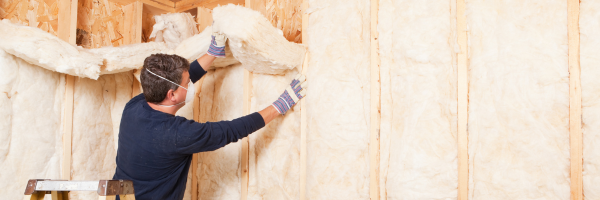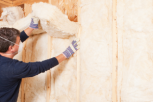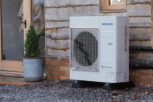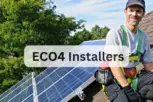Why Quality Insulation Services Matter: A Fresh Look at External Wall Insulation

Why Quality Insulation Services Matter
Despite headlines highlighting problems with external-wall insulation schemes in the UK, recent expert commentary underscores that insulation services, when done properly, remain one of the strongest tools homeowners have to boost energy efficiency and reduce heating bills. According to research from the UCL Energy Institute, the challenge isn’t insulation itself but ensuring decent standards, better training and reliable installers.
In this article:
- Quality insulation depends on expertise: Skilled, accredited installers using standards like PAS 2035 and TrustMark ensure insulation is fitted safely and effectively.
- Tailored design and strong oversight matter: Each home needs a custom insulation plan, backed by proper quality checks, warranties, and post-installation care.
- Long-term value and sustainability: When designed and maintained correctly, insulation services cut energy bills, boost comfort, and future-proof homes for a low-carbon future.
The Headline-Risk vs the Reality
It’s true, an audit by the National Audit Office found that many External Wall Insulation (EWI) jobs under older government schemes were poorly executed; leading to moisture issues, damp and malfunctioning systems. That said, the UCL researcher argues that only a smaller proportion of homeowners have reported problems (around 10%) and that the widespread media framing (eg 98% failure) confuses non-compliance with full defects.
For homeowners and businesses considering insulation services today, the takeaway is clear: insulation still works, but it must be carried out by skilled professionals, to the right standard, with appropriate checks. The downside stories simply highlight what happens when standards are low.
Why Insulation Services Remain Worthwhile
Energy Efficiency & Bill Savings
Decarbonisation & Future-Proofing
Value to the fabric
What Sets Good Insulation Services Apart
When it comes to home energy upgrades, not all insulation services are created equal. The difference between a successful insulation project and one that leads to problems often comes down to who installs it, how it’s designed, and how the work is supervised. The recent focus on poor-quality installations across the UK highlights why choosing the right insulation provider is so critical, and why expertise, not quick fixes, should guide your decisions.
High-quality insulation starts with experienced, properly trained installers. Accredited professionals understand how to assess wall types, moisture levels, and ventilation before installation begins. According to the UCL Energy Institute, the key issue isn’t the insulation materials themselves but a lack of consistent training across the workforce. By choosing installers certified through schemes such as TrustMark or PAS 2035, homeowners can have confidence that the work meets recognised quality and safety standards.
Every property is different, from the brickwork and render to how much sun and rain it gets. The best insulation services don’t apply a “one-size-fits-all” solution. Instead, they carry out detailed site assessments and specify materials that suit each building’s structure, ensuring optimal performance and long-term protection. A tailored approach prevents issues like trapped moisture or thermal bridging, while maximising comfort and energy efficiency. Whether it’s external wall insulation, loft insulation, or underfloor insulation, proper design always pays off in the long run.

One of the main lessons from recent government audits is that oversight matters. Even the best materials can fail if the work isn’t inspected and verified. Trusted insulation companies will follow clear quality-assurance processes, use approved systems, and provide warranties or insurance-backed guarantees. Independent checks, from pre-install surveys to post-completion testing, ensure that each layer of insulation performs as it should, keeping homes warm, dry, and efficient.
Good insulation isn’t a “fit it and forget it” upgrade. Over time, homes settle, materials weather, and external finishes can require light maintenance. The best insulation providers offer aftercare support, including maintenance advice, monitoring, and fast response if issues ever arise. Regular inspections and proactive care help preserve the system’s lifespan and protect your investment for decades to come.
How To Choose Insulation Installers
- Ask for installer accreditation (eg TrustMark, PAS 2035 compliance) and evidence of completed projects.
- Get a full survey that reviews wall type, moisture risk, ventilation and the proposed insulation system.
- Ensure clear warranties or insurance-backed guarantees apply.
- Choose a provider that commits to monitoring and follow-up support, not just upfront installation.
- Don’t let sensational headlines deter you, focus on quality rather than rejecting insulation services outright.
Final Thoughts
For those of us working in sustainable homes and retrofit, the message from the UCL Energy Institute is hopeful: we don’t need to abandon external-wall insulation; we need to improve how it’s done. Services provided by competent professionals remain a smart investment in comfort, efficiency and future-proofing your home.
At Cucumber Eco, we believe that when insulation services are delivered to high standards, they can deliver real value. If you’re planning an upgrade in 2026, perhaps alongside solar, heat-pump or battery additions, EWI remains a strong contender. As always, we’ll continue to bring you the latest on home energy efficiency, trusted installers and best practices for the sustainable home.





